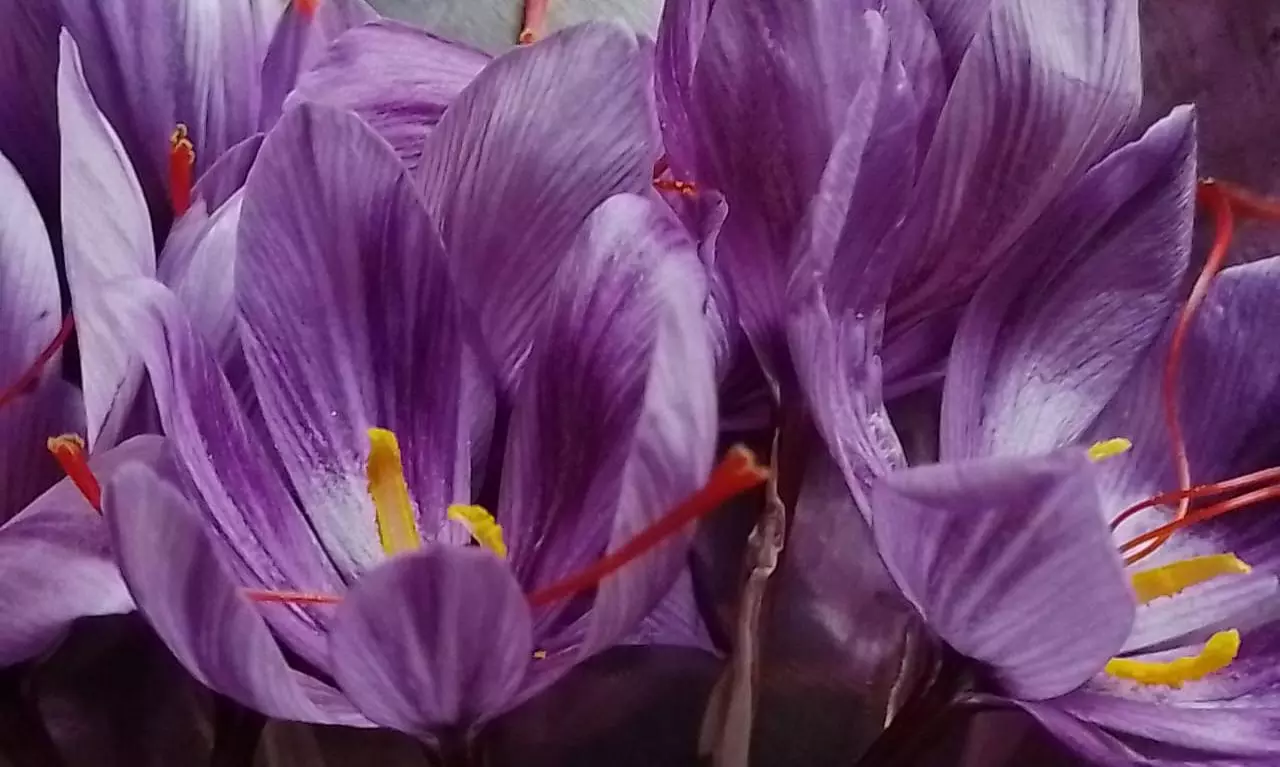
Can saffron grow in Kerala? Kanthalloor in Idukki shows the way
If the saffron project takes off, tourism opportunities will also further bloom for Kanthalloor, which won the Centre’s Gold award for its rural tourism project

If we mention “saffron in India”, which place would come to your mind? Kashmir, right? Would you associate “red gold” with anywhere in the South? But there is indeed a “mini Kashmir” in none other than God’s Own Country, which is turning out to be a hub of this priciest of spices.
We are talking about Kanthalloor in Kerala’s Idukki district, some 48 km from Munnar's popular hill station, often called the “Kashmir of South India”. And it is precisely the similarity of its climatic conditions with Kashmir that led the Krishi Vigyan Kendra (KVK) to launch a pilot project at various locations in Idukki, including Kanthalloor, Vattavada, and Vagamon. And the pilot has been successful.
Saffron flowers in the farm earlier last year. The crop was harvested in November
A year of failure
The success did not come at once, though. KVK, under the guidance of the Indian Council for Agricultural Research (ICAR), launched the project in 2022. It launched a campaign in these areas, encouraging farmers to try their hand at saffron cultivation. Several farmers decided to give it a try.
Seeds were procured from Kashmir and the plants bore flowers too. However, before they could be harvested, an unexpected downpour destroyed much of the crop. In 2023, only two farmers decided to give it another go despite the failure the previous year. One of them was at Perumala in Kanthalloor, and the other was at Vandanmedu near Kumily, both in Idukki. And this time, they succeeded. All the plants flowered, and the crop was harvested in November.
"So far, the trial has been successful and we are hopeful of getting good results. The climatic conditions and soil are suitable for saffron cultivation. In fact, the flowers grown in Idukki are bigger than what we see in Kashmir. We will have a clear picture by next year," Dr V Venkatasubramanian, director, Indian Council of Agricultural Research (ICAR), Bengaluru, told The Federal.
Dr Sudhakar Soundarajan, lead scientist at Idukki Krishi Vigyan Kendra (KVK), said the larger idea is to make the saffron farming commercially viable.
"Initially, we picked 15 locations and finally succeeded in two: Perumala (Kanthalloor) and Vandanmedu (Kumily), both in Idukki. The trial is successful, and the next step is to make it commercially viable. We have to go for largescale cultivation, which would probably begin in September. Once we achieve that, we can sell at lower prices compared to Kashmir," said Soundarajan, who made five trips to Srinagar to study and understand saffron cultivation.
Tourism boost
The project was experimental, It is unclear how much the crop will earn, but the tourists have already started thronging Kanthalloor — which, besides its natural beauty, is also known for its winter fruits like apples, oranges, strawberries, and blackberries — to see the saffron crop. However, they had disappointment in store because the flowers have already been harvested.
But then, if the saffron farming project takes off, tourism opportunities will also further bloom for Kanthalloor, which recently won the Centre’s Gold award for the best rural tourism project. But for that, more work has to be done. Saffron needs special care, as the flowers have to be plucked and sun-dried at the right time. The sun-drying process itself takes about a week.
The dried saffron, that is, the stigma and styles of the flowers extracted after the harvest
A delicate crop
The saffron plant takes 20 to 50 days to flower. The day temperature must be between 20 and 25 degrees Celsius and the night temperature around 5 degrees. At 5,000 feet, Perumala, which is the highest point in Kanthalloor, meets these conditions effectively.
The KVK team thinks at least 100 acres in Idukki can be devoted to saffron farming. If the project takes off commercially, an acre is expected to yield 1 kg of saffron, with the market price hovering around Rs 3 lakh/kg. Saffron is primarily grown in Iran, Iraq, and Kashmir in India. Will Idukki find a place on this elite saffron map? We will know in a year or two.

